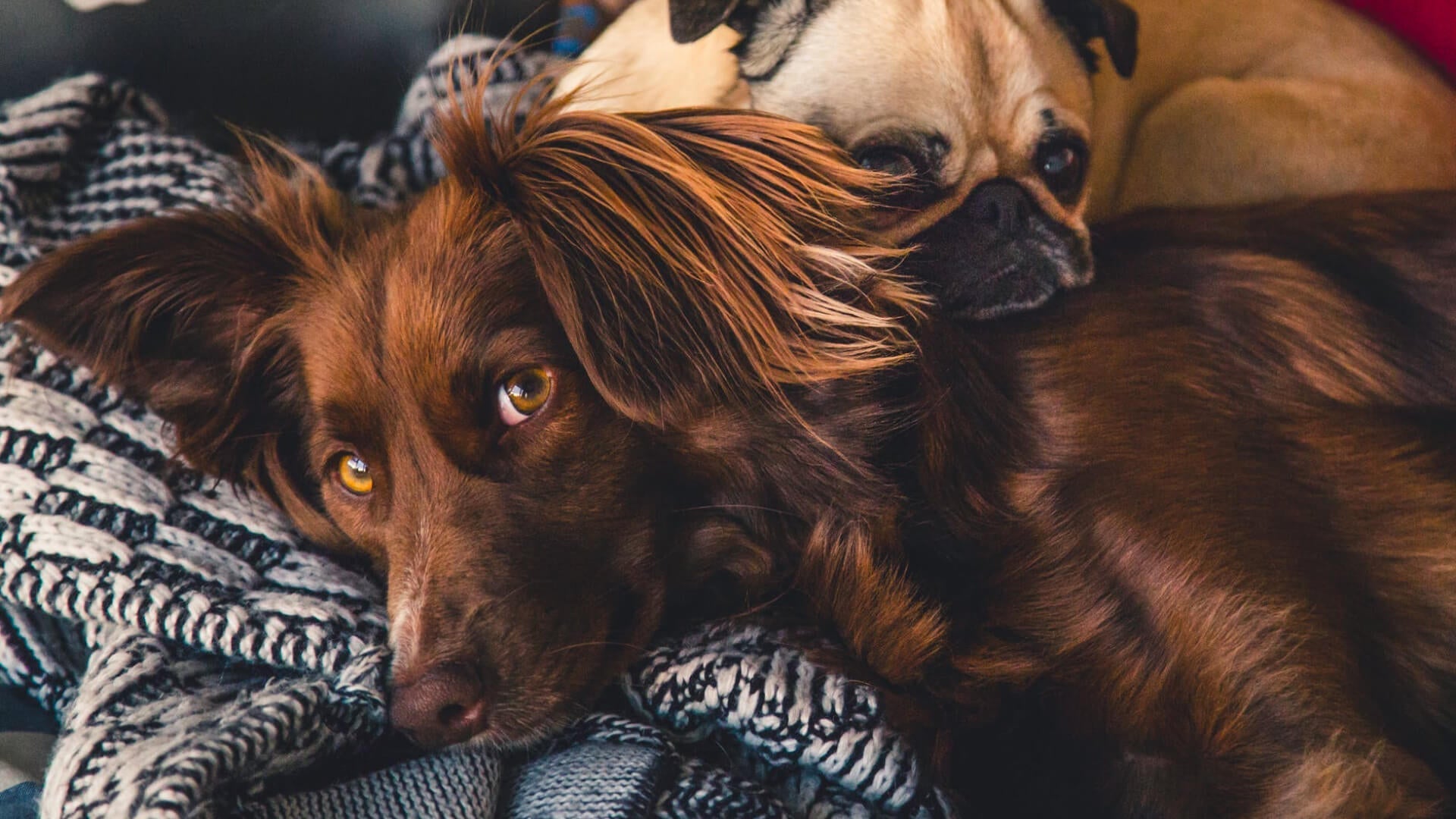The colder months bring waves of colds, not just for humans but for our pets too. If your dog has a cough or sniffles, it’s natural to wonder what steps to take. In this guide, we’ll help you recognise the signs of a cold in dogs and explore how to care for them naturally.
Is Your Dog Coughing or Sniffling?
Dogs can experience upper respiratory tract infections, just like humans. While kennel cough is one of the most well-known bacterial infections in dogs, they can also catch colds, common flu, or even canine influenza. Unlike kennel cough, which results from a mix of bacteria and viruses, dog colds are typically viral.
However, not every sneeze indicates a cold. Here are common symptoms to watch for:
Symptoms of a Cold in Dogs
- Coughing
- Watery eyes
- Nasal discharge
- Increased temperature or fever
- Swollen tonsils
- Loss of appetite and lethargy
These signs may appear together or individually, depending on the severity of the illness.
What to do if your dog has a cold? Correct treatment and care
What to Do if Your Dog Has a Cold
1. Check for Fever
Take your dog’s temperature to determine if they have a fever. Normal body temperature for dogs ranges between 37.5°C and 39°C (99.5°F to 102.2°F). If their temperature exceeds this range, contact your veterinarian promptly.
2. Provide Rest and Care
Allow your dog plenty of rest. Short, gentle walks in fresh air can aid recovery, but avoid strenuous activity like long jogs until they’re fully healthy. Overexertion can worsen symptoms and delay recovery.
3. Encourage Hydration
Ensure your dog stays hydrated. If they seem reluctant to drink water, try offering warm, home-brewed sage or peppermint tea sweetened with honey. These natural remedies can soothe symptoms:
- Sage: Loosens mucus in the airways and soothes irritation.
- Peppermint: Opens the respiratory tract and relaxes the stomach.
- Honey: Provides antibacterial benefits and calms coughs.
Other natural remedies such as rockrose, propolis for dogs or colostrum strenghen your dog's defences and can also be given all year round as a preventative measure against colds. While propolis, the popular natural bee product, is regarded as nature's antibiotic and counteracts immunodeficiency in dogs, rockrose powder promotes natural metabolic processes and is a tried and tested remedy from natural medicine.
Colostrum, on the other hand, is obtained from the surplus first milk of suckling cows and contains the all-important immunoglobulin G (antibodies), which also strengthen the immune system of newborns.
You can also support your pet's health with a light diet. Fresh chicken broth with chicken, boiled potatoes and carrots work wonders, and not just for us humans. However, avoid spices, as these can irritate the stomach lining.
To strengthen your dog's immune system and prevent colds, we recommend supplementing your pet's diet with important food supplements. Rosehip powder , spirulina or barley grass are rarely found in conventional dog food, but can have a huge impact on your dog's health and defences. They contain important vitamins, minerals and trace elements that are usually only available in synthetic form in conventional dog food.
However, we now know that vitamins from fruit and vegetables have a significantly higher bioavailability and the body can process them better. Furthermore, natural food supplements are generally free of side effects, unlike many synthetic versions.
Which Dogs Are Most at Risk of Catching a Cold?Certain groups of dogs are more prone to catching colds due to their immune system’s vulnerabilities. These include:
- Senior dogs
- Puppies and young dogs
- Chronically ill dogs
- Dogs with pre-existing conditions
- Dogs with weakened immune systems
- Senior Dogs: As dogs age, their immune systems slow down, and many metabolic processes become less efficient, leaving them more vulnerable to infections.
- Puppies: Young dogs, especially puppies, have developing immune systems that are still building defenses, making them easy targets for viruses and bacteria.
- Chronically Ill or Immunocompromised Dogs: Dogs with chronic illnesses or pre-existing conditions often have weakened immune systems, which are already under strain and unable to fend off infections effectively.
Additionally, these risk groups are more susceptible to parasites such as worms, mites, and giardia, further compromising their health.



